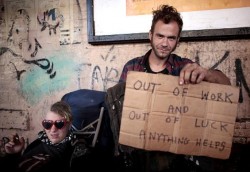Understanding the Consequences of Heroin Abuse
Heroin abuse is a serious issue. Many people who start taking the drug do so recreationally and do not realize how problematic use of the drug can become. Heroin is addictive and dangerous, causing many deaths by overdose per year. Understanding the consequences of heroin abuse is sobering and can help someone admit that treatment may be necessary.
Addiction
One of the most common and dangerous consequences of heroin abuse is addiction to heroin. The NIDA states, “It is estimated that about 23 percent of individuals who use heroin become dependent on it.” Though dependence is not the same addiction, with illicit drugs, they often go hand in hand. Heroin is an addicting substance and using it often will cause a person to experience these issues:
- Tolerance
- Tolerance occurs when the original amount of the drug that the person abused does not give them the same desired effects as it once did. Therefore, the person will begin to use more of the drug to get the effects they want. Tolerance can lead to addiction as the person is taking more and more of the drug.
- Dependence
- Dependence means that a person cannot feel normal without taking the drug. After a while of chronic abuse, people don’t take heroin anymore to feel euphoric. They take the drug because they do not feel they can function without it and also to stave off withdrawal symptoms.
- Withdrawal
- Heroin withdrawal usually consists of these problematic symptoms, according to the NIH:
- Vomiting
- Chills
- “Pain in muscles and bones”
- Nervousness
- Anxiety
- Insomnia
- Flu-like symptoms
- Heroin withdrawal usually consists of these problematic symptoms, according to the NIH:
Heroin addiction is a serious issue, and a person will need addiction treatment in order to recover from it.
Overdose
Overdose is a common consequence of heroin abuse. According to the NIDA Teen, “In 2011, 4,397 people died in the United States from a heroin overdose.” When a people overdose on heroin, their breathing becomes very shallow and slow and sometimes stops altogether. Heroin overdose is very dangerous and is common among heroin users.
Even after someone goes through heroin addiction treatment, there is still a possibility for overdose. The NLM states, “most opiate overdose deaths occur in people who have just withdrawn or detoxed.” They have a lower tolerance to the drug than they realize after treatment, and if they relapse, they often overdose and die.
Other Consequences of Heroin Abuse

Heroin often leads to addiction, which can lead to homelessness and much more.
There are many other consequences of heroin abuse. People often do not realize how dangerous this drug can be. Other consequences may include:
- Legal problems
- Heroin is an illegal drug, and buying or selling it could get a person in trouble with the law.
- Money problems
- A heroin habit is expensive to maintain. “The average heroin addict can spend up to $200 per day,” sometimes leading to debt and homelessness (CESAR).
- School and work problems
- A person could lose their job or be kicked out of school for abusing heroin. This can also cause more monetary issues.
- Relationship problems
- Many relationships (not only partners but friendships and family relationships) can be torn apart by heroin abuse. Some relationships can be salvaged afterward, but others sometimes cannot.
Heroin abuse has real consequences that can end in painful situations and even death. Knowing the vast consequences of heroin abuse is important.










